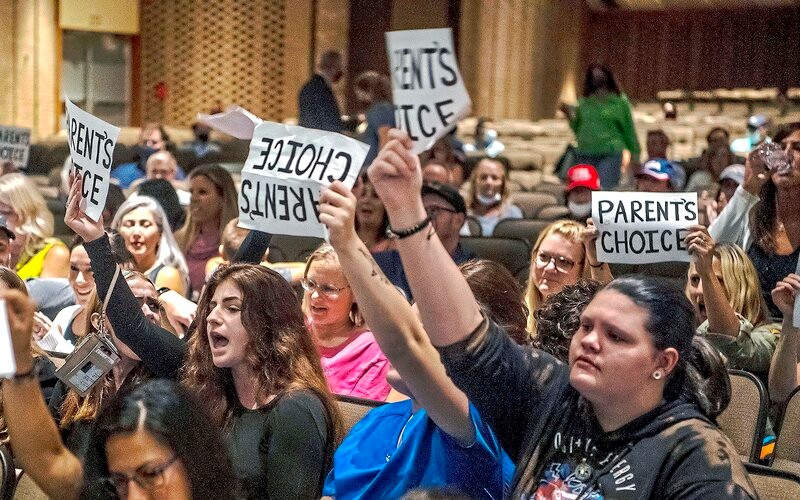AP reports that about 43 million Americans could see their student loan debt reduced – and in many cases eliminated – under Biden's plan. It's viewed by some as historic, but also as a politically divisive move just 12 weeks before the midterm elections. It's also seen as an attempt to stem the tide of America's rapidly rising student debt. AP also points out that as a regulation, it would not require congressional approval – but it can take more than a year to finalize. Regardless, it faces nearly certain legal challenges.The Committee for a Responsible Federal Budget has estimated Biden's plan will cost taxpayers between $440 billion and $600 billion over the next ten years – more than double the amount supposedly saved via the recently passed Inflation Reduction Act, completely eliminating any disinflationary benefit from the bill. |
Following Wednesday's "student loan relief" proclamation by President Joe Biden, his Justice Department argued in a legal opinion that a 2003 military benefit gives him the authority to do that. Under the HEROES Act of 2003,* says the DOJ, the administration has "sweeping authority" to reduce or eliminate student debt during a national emergency, "when significant actions with potentially far-reaching consequences are often required."
As The Associated Press points out, former President Donald Trump declared a national emergency in 2020 because of the pandemic – and it remains in effect.
While the White House clearly believes Biden does have the authority, Andrew Handel of the American Legislative Exchange Council (ALEC) doesn't think that's the case.
"And you do not have to take my word for it," he tells AFN. "I don't often find myself agreeing with Speaker [Nancy] Pelosi very often, but she herself said last year that the president does not have the legal authority to forgive student loan debt; that it would take an act of Congress in order to make that happen."
That's not hyperbole. Below is a statement Pelosi made to reporters in July 2021:
Pelosi: "People think that the president of the United States has the power for [student loan] debt forgiveness. He does not. He can postpone; he can delay – but he does not have that power. That has to be an act of Congress. The question of who gets forgiven is a debate, but the president can't do it. So, that is not even a discussion."
On Tuesday, however, when word came Biden would be announcing his debt-forgiveness plan the next day, Pelosi was singing a different tune, saying she "didn't know what – what authority the president had to do this. And now clearly, it seems he has the authority to do this."

But it's not so clear to Handel. He argues that a recent Supreme Court ruling in West Virginia v. EPA – which involved a supposed major questions doctrine – could be a factor here.
"In a nutshell what the court said was executive agencies can't make massive decisions with huge political and economic ramifications unless given the explicit authority from Congress," he explains. "Congress hasn't given the department or the president the authority to forgive these loans – so, I'm very suspect that the president has the authority to do this."
Handel – writing the day before Biden's formal announcement – has other issues with student debt forgiveness, as explained in his article on ALEC.org.
* The HEROES Act of 2003 was adopted with overwhelming bipartisan support at a time when U.S. forces were fighting two wars, in Afghanistan and Iraq. It gives the secretary of the Education Department authority to waive rules relating to student financial aid programs in times of war or national emergency.







